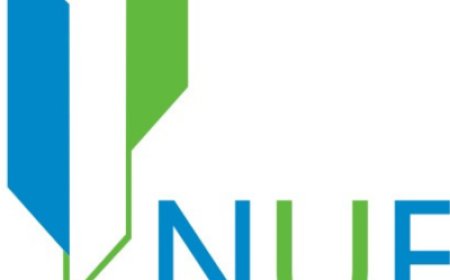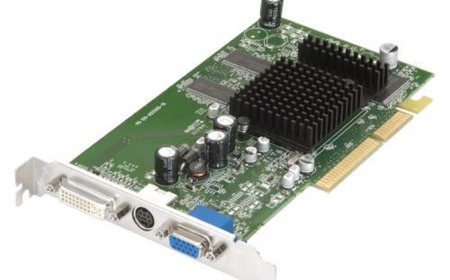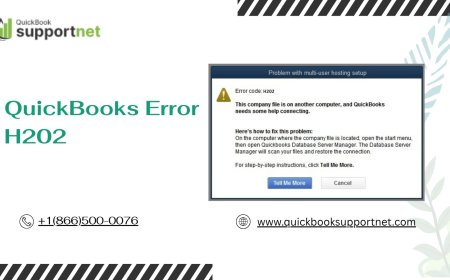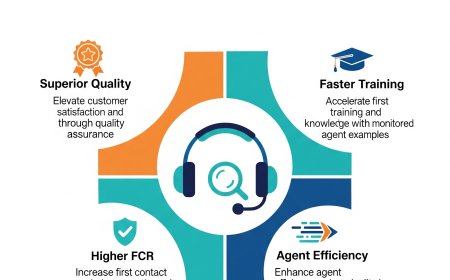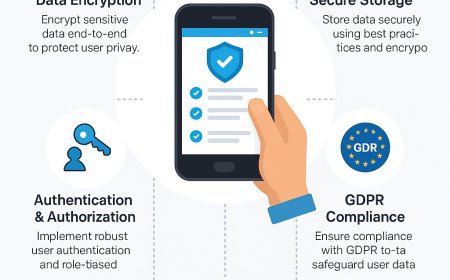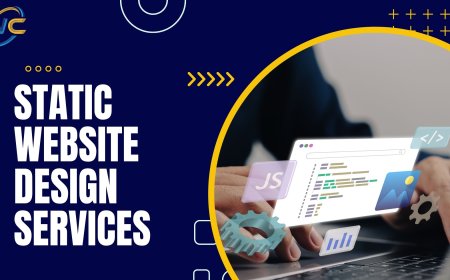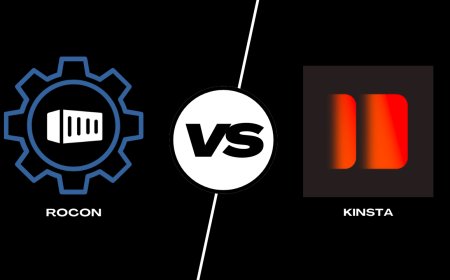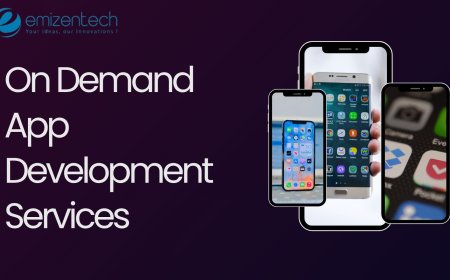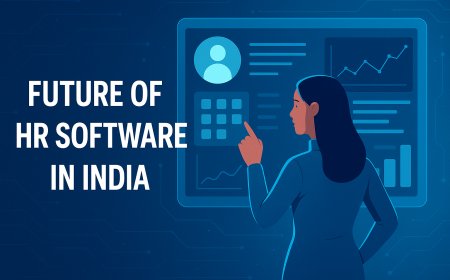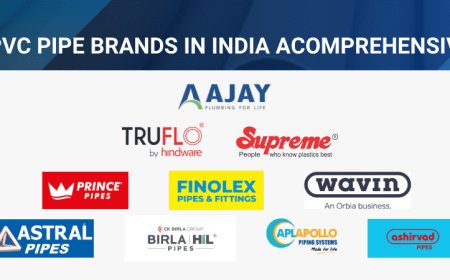Healthcare IT Stuck? 3 Ways to Speed Up and Smartify Solutions
Explore three effective ways to modernise and accelerate healthcare IT systems with expert support, consulting, and scalable digital strategies.

In an era where healthcare delivery depends as much on technology as it does on clinical expertise, the slow pace of digital transformation in many healthcare environments is alarming. Whether its outdated legacy systems, poor data interoperability, or the struggle to implement AI-driven processes, many organisations find themselves stuck with inefficient IT setups that hinder progress.
This article outlines three practical strategies to speed up healthcare IT implementation and smartify your existing systems. With the help of targeted healthcare IT consulting and trusted local support services like IT support St Albans, hospitals and clinics can embrace transformation with minimal disruption and long-term gain.
1. Upgrade Infrastructure with Cloud and Edge Technologies
Many healthcare providers still operate on-site servers and fragmented systems that are not only costly but also slow and insecure.
-
Move to cloud computing for scalable and secure data management
-
Cloud platforms provide healthcare it consulting organisations with adaptable storage solutions, improved disaster recovery options, and the scalability to adjust computing resources based on fluctuating clinical and operational demands.
-
Cloud-based Electronic Health Records (EHR) allow authorised staff from different departments to access up-to-date patient information instantly, minimising delays and supporting faster, more coordinated patient care.
-
Implement edge computing for faster, localised processing
-
Edge computing enables data to be processed near the source, such as remote monitoring tools or diagnostic machines, reducing latency and enhancing responsiveness in patient care settings.
-
By enabling instant data analysis, edge computing supports real-time clinical decisions in critical environments like intensive care units and emergency departments, where every second is vital.
-
Reduce reliance on physical infrastructure
-
Hospitals and clinics benefit from less downtime, fewer maintenance issues, and improved business continuity.
-
With support from local experts like IT support St Albans, healthcare organisations can ensure smooth transitions and ongoing technical maintenance.
Healthcare IT consulting firms can assess existing infrastructure, recommend suitable cloud providers, and guide seamless integration to avoid any service disruption.
2. Use AI and Automation for Smarter Clinical and Administrative Workflows
A key factor in modernising healthcare IT is making operations not just faster, but smarter.
-
AI-driven diagnostics and clinical support
-
Machine learning models are capable of analysing complex medical images, laboratory results, and historical patient records to generate early warnings and suggest personalised treatment options, aiding clinical decision-making.
-
By accelerating the diagnostic process and improving precision, these technologies significantly benefit specialties such as oncology and radiology, where timely and accurate assessments are crucial for patient outcomes.
-
Automate routine administrative tasks
-
Automation streamlines various healthcare administrative tasks, from patient appointment scheduling to insurance claims processing, significantly cutting down manual effort and minimising the risk of human errors.
-
Robotic Process Automation (RPA) tools are increasingly being adopted to enhance hospital efficiency by automating billing and documentation workflows, leading to faster processing times and improved accuracy.
-
Enhance decision-making with predictive analytics
-
Data-driven insights enable hospitals to accurately forecast patient admission trends, optimise staff scheduling, and proactively maintain medical equipment to reduce unexpected downtime and improve service delivery.
-
Predictive models analyse historical and real-time data to identify patients at higher risk of complications, allowing healthcare providers to intervene early and implement preventive care strategies effectively.
Healthcare IT consulting specialists can assist in choosing the right AI platforms, training staff, and integrating these systems into existing workflows. This reduces the time it takes to roll out intelligent technologies and ensures they're used effectively.
3. Strengthen Interoperability and Improve Data Exchange
Despite the growing number of digital health tools, one of the biggest roadblocks in healthcare IT is the lack of seamless communication between systems. This is where interoperability becomes crucial.
-
Adopt industry standards like FHIR and HL7
-
These interoperability frameworks ensure that diverse healthcare applications use standardised formats and protocols, allowing them to communicate effectively and exchange data accurately across systems.
-
By implementing APIs and robust data exchange protocols, healthcare providers can break down data silos, fostering better collaboration and seamless information sharing between departments and across different institutions.
-
Consolidate health data onto unified platforms
-
With unified dashboards, care providers can view lab results, patient histories, imaging, and prescriptions in one place.
-
This minimises the chances of miscommunication between care teams and significantly reduces unnecessary repetition of diagnostic tests or medical procedures, leading to better patient outcomes and lower costs.

-
Ensure secure and compliant data sharing
-
Modern interoperability solutions are designed to align with GDPR regulations, ensuring secure data sharing across systems while protecting patient privacy and maintaining legal compliance.
-
Real-time alerts and detailed access logs enhance transparency by tracking who accesses patient data, promoting accountability and helping healthcare providers detect and respond to potential breaches swiftly.
A well-designed interoperability strategy, supported by healthcare IT consulting experts, helps organisations move from isolated systems to integrated ecosystems. With local technical support such as IT support St Albans, healthcare providers can also ensure that updates, patches, and training are handled without slowing down day-to-day services.
Why These Three Approaches Matter Now
The need for rapid IT upgrades in healthcare isnt just about keeping up with technologyits about improving patient outcomes, reducing operational burden, and staying compliant with ever-evolving regulations. Failing to adapt not only risks inefficiencies but may also result in security breaches and loss of patient trust.
-
Healthcare organisations that invest in modern infrastructure benefit from enhanced system reliability, resulting in fewer service outages and allowing for the quicker rollout of new technologies and digital health solutions.
-
Integrating smart workflows driven by automation and artificial intelligence helps reduce repetitive tasks, freeing up clinical staff to focus on patient care while increasing the accuracy and efficiency of healthcare processes.
-
Interoperable health systems enable seamless data exchange across departments and providers, cutting down on administrative delays, enhancing care coordination, and supporting compliance with evolving healthcare regulations.
With the increasing complexity of digital health ecosystems, combining strategic healthcare IT consulting with reliable IT support St Albans ensures a more cohesive and sustainable transformation journey.
Conclusion
While many healthcare organisations face the challenge of outdated IT systems and complex technology choices, the path to modernisation is clearer than ever. Focusing on scalable infrastructure, intelligent tools, and interoperable systems can dramatically speed up IT performance and create smarter workflows. Renaissance Computer Services Limited offers trusted healthcare IT consulting services and expert IT support across locations like St Albans, helping healthcare providers overcome technical hurdles and achieve operational excellence. With decades of experience and tailored solutions, the company supports both immediate digital upgrades and long-term strategic growth.


















